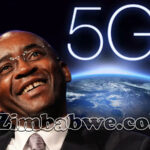The Zimbabwe Democracy Institute (ZDI), an independent think-tank, warns that President Emmerson Mnangagwa’s faction within Zanu PF is treading a dangerous path, echoing the very mistakes that led to the downfall of former President Robert Mugabe. As internal divisions deepen over Mnangagwa’s controversial potential third term, the spectre of military intervention looms large once more.
Historical patterns suggest that the military may soon assert its influence to resolve the burgeoning chaos within the party. The Mgagao Declaration of 1975 and the November 2017 coup serve as stark reminders of the military’s pivotal role in shaping political outcomes in Zimbabwe, particularly during times of elite discord.
While Mnangagwa has publicly declared his intention to step down in 2028, growing scepticism surrounds his commitment to this promise. Loyalists are actively campaigning for the 82-year-old leader to extend his rule until 2030, disregarding constitutional limits. The ZDI’s recent study, titled Fractured Front: Analysing Zanu-PF’s Contradictions Over Third Term Politics, highlights the likelihood that the military will again intervene to mediate the party’s internal conflicts.
“Whether through overt action or covert influence, the military is poised to act as the ultimate arbiter in this power struggle,” the report states. However, it cautions that such military interventions often lead to mere reshuffles of power rather than genuine democratic progress for Zimbabwe.
As Zanu PF approaches its upcoming conference from 22 to 27 October in Bulawayo, the political landscape is fraught with contradictions. Despite Mnangagwa’s assurances that he is not seeking another term, persistent pressure from senior party members suggests otherwise. The internal dynamics of Zanu PF have grown increasingly complex, with factions emerging around the contentious issue of the President’s potential third term.
One faction, comprising influential figures such as the party’s national political commissar Munyaradzi Machacha, is actively campaigning for Mnangagwa’s continued leadership. Machacha recently stated, “Isn’t this what you term democracy? If we keep quiet, then you will say there is no democracy. And if others speak, you question them.”
He emphasised that public sentiment favours Mnangagwa’s continued leadership, arguing, “So here, it is the people who are talking and the President listens to the wishes of his people, ndozviripo [It is what it is].” This sentiment reflects a significant division within the party, as some members warn of the dangers of consolidating power within a single leader.
Historically, the military’s involvement in Zanu PF politics has been a decisive factor in leadership transitions. The Mgagao Declaration, which replaced Ndabaningi Sithole with Mugabe, exemplifies the military’s influence over party direction. Fast forward to November 2017, the military’s intervention led to Mugabe’s ousting, allowing Mnangagwa to rise to power under a “military-assisted transition.”
The ZDI report underscores that military interventions do not typically foster genuine democratic change. Instead, they often result in a mere reshuffling of the elite without addressing the fundamental issues impacting Zimbabwe’s political landscape. “As the factions within Zanu PF vie for dominance, the outcome of this internal conflict will shape the party’s future and, by extension, the country’s political landscape,” the report cautions.
As Zanu PF navigates the contentious issue of Mnangagwa’s third term, the military’s role will likely remain critical. With rising tensions and diverging voices within the party, the prospect of military intervention poses a serious threat to Zimbabwe’s democratic aspirations.
Some party members, particularly senior war veterans from Masvingo province, have voiced their opposition to the notion of a third term for Mnangagwa. They caution against the entrenchment of power within a single individual, highlighting the urgency for democratic principles to guide Zimbabwe’s political future.












